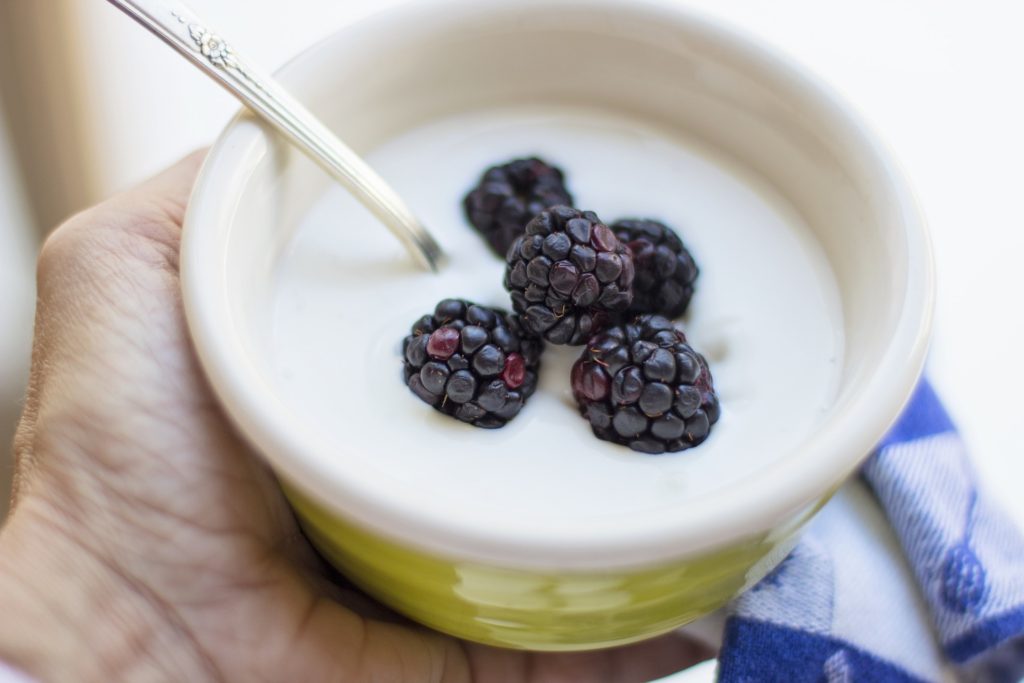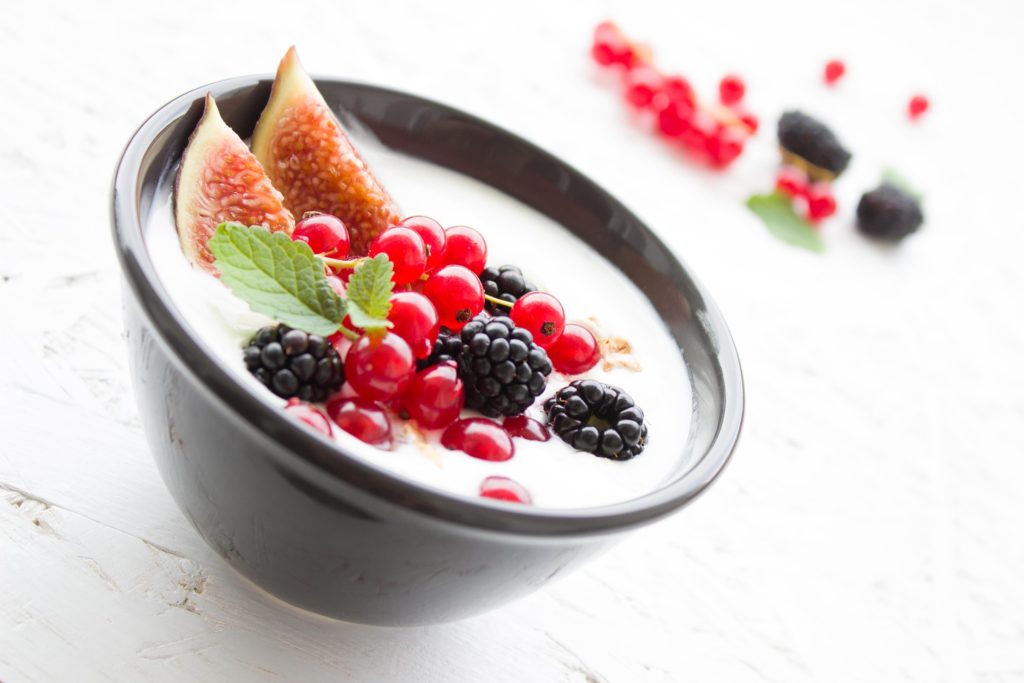Best probiotic for digestive problems: People with digestive problems often have low levels of good bacteria, or probiotics, in their gut. Probiotics are available as supplements and in some foods.
Probiotics can help to repopulate the gut with good bacteria and improve digestive issues, including irritable bowel syndrome (IBS), diarrhea caused by antibiotics, and infectious diarrhea.
They may also help with lactose intolerance and other digestive issues. Doctors often recommend them for people with inflammatory bowel disease (IBD).
People who want to try a probiotic should talk to their doctor about the best type for their needs. In this article, we provide an overview of the best probiotics for digestive problems.
The human gut contains trillions of microorganisms, including at least 1,000 different species of bacteria. These bacteria play many roles in the body’s health, including helping to digest food, fighting disease-causing microbes, and regulating the immune system.
Doctors call these beneficial organisms “probiotics.” The word comes from Greek and means “for life.”
However, the body may not produce enough probiotics on its own. For example, people may have fewer good bacteria if they take antibiotics regularly or eat a diet high in processed foods and sugars.
This imbalance can lead to a
The best probiotic for digestive problems is Lactobacillus acidophilus. This product contains two strains of bacteria that are found naturally in the digestive tract and vagina of women. These two strains, Lactobacillus acidophilus, NCFM, and Bifidobacterium lactis, Bi 07, help maintain your gastrointestinal health. They inhibit the growth of harmful bacteria and support a healthy immune system.
What are Probiotics
Probiotics are live microorganisms (most often, bacteria) that are similar to beneficial microorganisms found in the human gut. They are also called “friendly bacteria” or “good bacteria.” Probiotics are available to consumers mainly in the form of dietary supplements and foods.
They can be used as complementary and alternative medicine (CAM). There is a growing interest in the use of probiotics to prevent and treat various gastrointestinal conditions, such as infectious and antibiotic-associated diarrhea, acute diarrhea in children,
Irritable bowel syndrome, inflammatory bowel disease, gastric ulcers caused by Helicobacter pylori infection, Helicobacter pylori eradication to prevent gastric cancer, and traveler’s diarrhea caused by enterotoxigenic Escherichia coli.
The World Health Organization defines probiotics as: “Live microorganisms which when administered in adequate amounts confer a health benefit on the host.”
Probiotics are microorganisms that have a health benefit when consumed. The term “probiotic” is currently used to name ingested microorganisms associated with benefits for humans and animals. The term came into more common use after 1980 and was formally defined in 2001.
Probiotics are commonly consumed as part of fermented foods with specially added active live cultures, such as in yogurt, soy yogurt, kefir, aged cheeses, pickles, sauerkraut, kombucha, and natto.
The idea of consuming live bacteria for health dates back to 1908 when Metchnikoff suggested that consumption of milk fermented by lactic acid bacteria would confer health benefits.
A probiotic is a microbial food supplement that beneficially affects the host by improving its microbial balance. Probiotics are mainly used for conditions of the gastrointestinal tract (GIT), but can also be used for infections of the urinary and genital tract and on skin disorders. They may also be applied to reduce serum cholesterol and aid in cancer prevention. The best probiotic for digestive problems is also one that you like and will eat.

How do Probiotics Help Our Bodies
For centuries, fermented foods—from sauerkraut to kefir to kimchi—have been a part of human diets. Their popularity may be due in part to their reputation for promoting digestive health. But what’s the real story? Do they actually help your guts and if so, how?
For starters, we have to define what we mean by “probiotic” because it’s not a scientific term. It is typically used to describe foods or supplements that contain live bacteria.
But there are many different bacteria in our guts, and each has its own purpose. In fact, there are more than 1,000 species of bacteria in the gastrointestinal tract alone, and we are only just beginning to understand the roles they play in maintaining good health.
Probiotics Help Microbiota
The key question is: Does consuming probiotics do anything for the microbiota living inside us? The answer is yes — but only temporarily. There are many types of microbes in our bodies, from fungi to viruses and bacteria. We usually think of bacteria as harmful “germs,” associated with infections such as strep throat or urinary tract infections (UTIs). Fortunately, most of the bacteria in our body are harmless and even helpful; some are essential for our survival.
Probiotics are live bacteria and yeasts that are good for your health, especially your digestive system. We usually think of bacteria as something that causes diseases. But your body is full of bacteria, both good and bad. Probiotics are often called “good” or “helpful” bacteria because they help keep your gut healthy.
You can find probiotics in supplements and some foods, like yogurt. But the food has to say it has live, active cultures. That’s the only way to be sure there are live probiotics in it. And the FDA doesn’t regulate probiotics like it does drugs, so companies don’t have to prove that their products work. The best probiotic for digestive problems is going to be natural or a high-quality supplement.
What are the Best Probiotics
The term “probiotic” has no fixed meaning. People use it to refer to everything from yogurt to bacteria-based dietary supplements. There are more than 500 kinds of bacteria in your gut, so even if we just limit ourselves to those, the number of potential probiotics is vast.
Because the term “probiotic” doesn’t mean anything specific, it’s impossible to say whether a particular product is or isn’t one. At best you can give “probiotic” a vague definition like “live bacteria that have some health benefit,” but then you have to spend time testing each product individually to see whether it lives up to your definition.
Since most of these products don’t live up to their claims anyway, this is not an efficient use of time. The only way I know of for consumers to tell whether a product is worth buying is for them personally to test it out and see if it works for them.
If you see a particular probiotic advertised on TV or the web, my advice is: don’t buy it; don’t even consider buying it until (1) you’ve tried a simpler version of the same thing
There’s not a lot of research on probiotics yet, so it’s hard to say what the best ones are. The best probiotics for digestive problems are the best-known ones and are those that have been tested on humans and found effective:
- Bifidobacterium bifidum W23
- Bifidobacterium infantis 35624
- Lactobacillus acidophilus SD5212
- Lactobacillus casei Shirota
- Lactobacillus reuteri ATCC 55730

What Foods Contain the Best Probiotics
Probiotics are healthy bacteria that live in our digestive system. They have many important jobs, including fighting off harmful bacteria and aiding digestion.
Although it is best to get probiotics from whole foods, this is not always an option for everyone. However, many probiotic supplements are available for purchase online.
As far as foods go, you can get probiotics from yogurt, fermented vegetables like kimchi, and soy drinks.
But don’t try to make your own. A recent study found that homemade sauerkraut has fewer probiotics than commercial varieties, which likely means the same is true of other DIY fermented foods.
Also, probiotic supplements are a thing. They’re not magic pills, but they can help if you’re on antibiotics or have some other reason for a depleted microbiome. Some people even report benefits like clearer skin and less bloating when they take a regular dose.
Probiotics are healthy bacteria naturally present in your body. They help you digest food and absorb nutrients, and they protect your gut from harmful bacteria. You can boost the number of probiotics in your system by eating probiotic-rich foods.
Yogurt
Yogurt is a convenient way to get probiotics. Some types contain live bacteria, while others are heat-treated, killing off the bacteria. The heat-treated varieties don’t provide the same benefits as live yogurt. Look for products that state on the label “contains live cultures.”
Kefir
Kefir is a fermented milk product prepared by adding kefir grains (colonies of bacteria and yeast) to milk. It is a rich source of probiotics that help improve digestion and boost immunity. Kefir also contains protein, calcium, B vitamins along with other nutrients that benefit health. You can drink it plain or add it to smoothies or salads.
Conclusion
If you have a digestive problem, you may wonder if adding probiotics to your diet might help. Probiotics are “good” bacteria that live in your gastrointestinal tract.
Studies have found that probiotics can help with everything from diarrhea to irritable bowel syndrome. But different people react differently to the same treatment, and it’s not fully understood how probiotics work in the body.
A variety of foods contain probiotics, but supplements are more potent and standardized. The best probiotic for you will depend on the condition you’re using it to treat. And of course, always check with your doctor before starting a new supplement routine!
The Health Wealth Lifestyle has provided the above article on the best probiotic for digestive problems is for informational purposes only. Please consult a health care provider as you see fit.

We get asked this question all the time and it’s not really surprising. We all want the best, especially when it comes to our health. But here’s the thing: when it comes to supplements, there is no one-size-fits-all answer.
Every probiotic supplement contains a different mix of strains (different types of bacteria) and these strains may help with different issues. So, if your main goal is to banish your bloating, it’s best to choose a probiotic with strains that have been shown to be effective against bloating.
We’ve created a list of the best probiotics for digestive problems below. But first, let’s learn more about probiotics – what they are and why you should consider taking them.
The best probiotic for digestive health is one that has been scientifically proven to survive stomach acid, reach the intestines alive, colonize the gut, and show a therapeutic benefit.
What are Probiotics?
Probiotics are living microorganisms that provide health benefits when consumed. They can be found naturally in many fermented foods. They can also be taken as supplements or added to foods such as yogurt.
Many people believe that probiotics are effective for treating digestive problems such as diarrhea, irritable bowel syndrome (IBS), inflammatory bowel disease (IBD), and other conditions. However, there is little scientific evidence to support these claims.
What is Digestive Health?
Digestive health refers to the overall health of your digestive system. It’s important for absorbing nutrients from food and expelling waste from your body.
Poor digestive health can lead to nutrient deficiencies, weight gain, and even chronic diseases like diabetes and heart disease. Fortunately, you can improve your digestive health by making dietary changes and incorporating probiotics into your diet.
There is a saying in the medical community that 80% of all diseases begin in the gut, meaning that if you have a healthy digestive tract, you are less likely to get sick. Yet few people realize how much our digestive health depends on the bacteria that live there.
The most common digestive problems are gas and bloating, indigestion and heartburn, diarrhea and constipation, IBS and IBD, autoimmune conditions (including thyroid), colitis, Crohn’s disease, diverticulitis, and colon cancer. Digestive problems aren’t caused by one single thing; rather, they’re the result of a combination of factors, including stress levels and diet choices. But for many people with digestive problems — especially those with autoimmune conditions — low levels of good bacteria in the gut is often at the core of their problem.
Good bacteria are essential to digesting food. They help you break down your food so your body can extract nutrients from it. They also fight off bad bacteria and keep them from making you sick. Unfortunately, many people don’t have enough good bacteria in their digestive tract because they don’t eat enough fiber or because they take antibiotics often.
Most people know that probiotics are ‘good bacteria.’ But do you know why they’re good? Or what they do in the body?
There are more than 500 different types of bacteria in the digestive tract. These “good” bacteria help support our immune system by keeping harmful organisms, like those that cause disease, in check.
They help to produce some vitamins and enzymes that aid in digestion, and they also help to break down foods so nutrients can be absorbed. Probiotics, or good bacteria, also compete with bad bacteria for space and food in the gut – and this competition helps bad bacteria get flushed out of the digestive system.
Disclosure: I may receive affiliate compensation for some of the links above at no cost to you if you decide to purchase anything. This site is not intending to provide health or financial advice. This is for entertainment only. Please consult a professional as you see fit.
